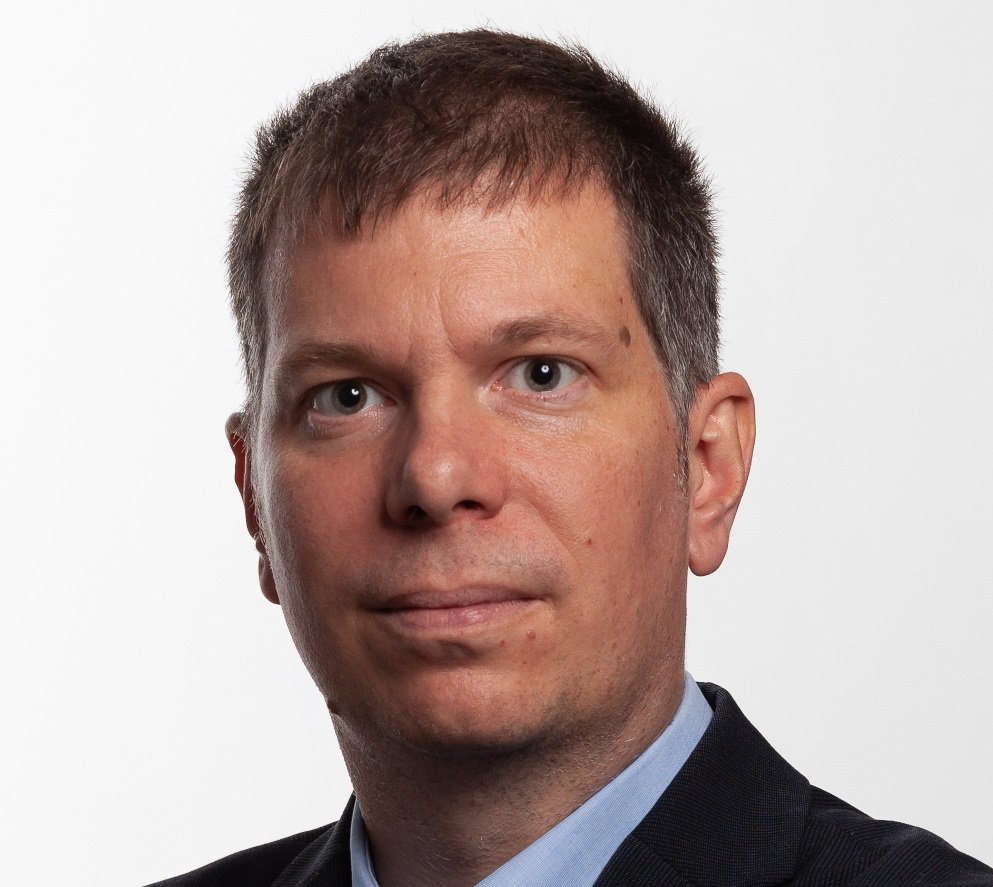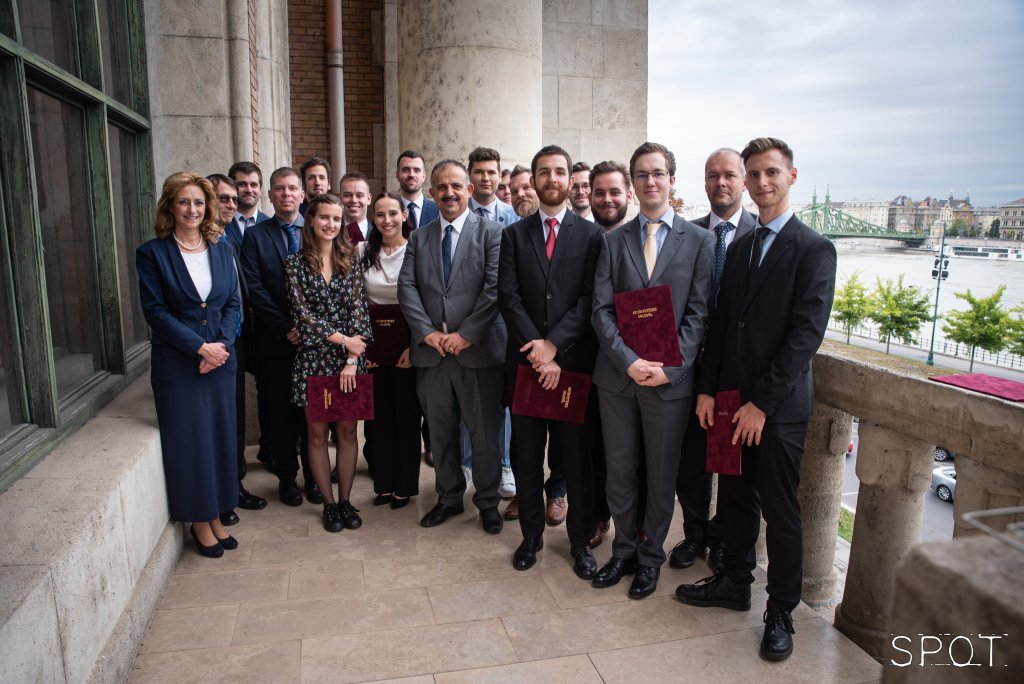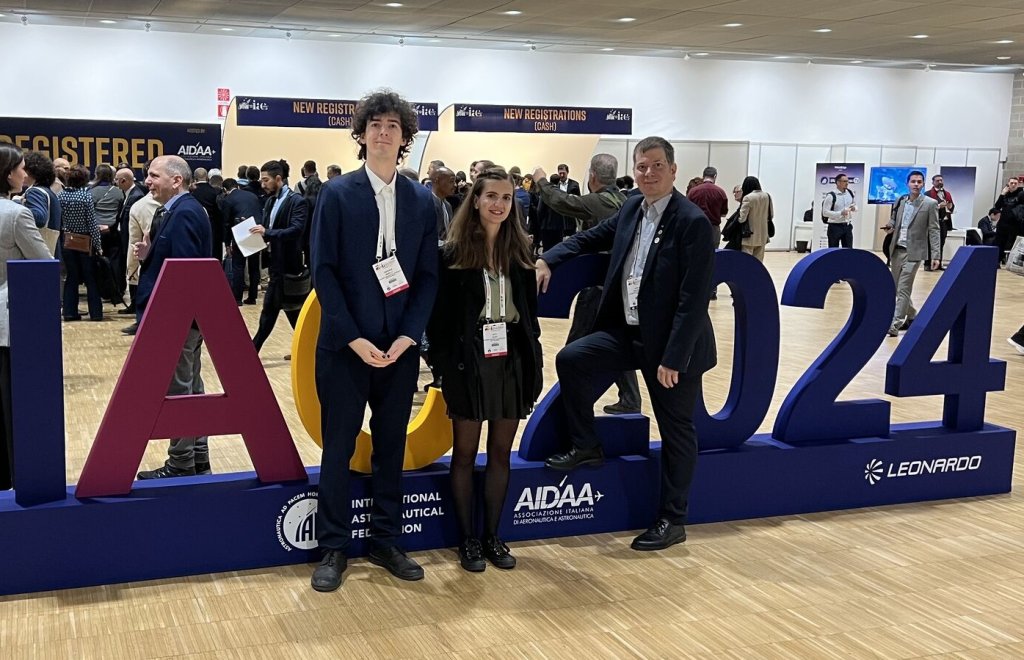This past summer saw the graduation of the first cohort of this unique BME programme. Given its distinct status not only within Hungary but also across Central Europe, the cross-term admissions period presents an ideal time to reflect on the first four terms. We spoke with Dr László Bacsárdi, Associate Professor and Programme Leader at the Faculty of Electrical Engineering and Informatics (VIK).
“The idea of establishing an space engineering programme in Hungary emerged eight years ago during a workshop by the Hungarian Astronautical Society. It was revisited at a space education conference held at BME in April 2018, and by spring 2019, BME committed to taking the lead in launching this master’s programme,” Dr Bacsárdi explained to bme.hu. The then Rector, János Józsa, supported the programme’s creation, and VIK ultimately embraced the initiative, being a faculty with a rich history in space technology.

“Around 2013-14, we established the BME Space Forum to support, on a voluntary basis, the departments involved in space research – 14 departments across five faculties in total. Although other faculties also could have taken on the management of this training programme, VIK had a head start: as early as the 1960s, staff at the Department of Broadband Infocommunications and Electromagnetic Theory had been involved in various space technology projects, participating in over 40 missions to develop, for example, power supply systems and onboard communication equipment,” Dr Bacsárdi added. Notably, Hungary’s first satellite, Masat-1, and subsequent small satellite projects also trace their roots to this faculty.
Rather than defining the content of Hungarian space engineering training unilaterally, the lecturers collaborated with companies and other universities to establish the programme’s training and outcome requirements. By summer 2020, it was clear what a Hungarian space engineer should know: an understanding of the specific conditions of space as distinct from terrestrial environments, familiarity with space technology and its applications, and expertise in the necessary standards to work in international partnerships. “The programme’s launch was delayed somewhat due to the COVID-19 pandemic, but we welcomed our first students in the autumn of 2022, and this June, 19 space engineers received their Master’s degree – most of them with honours,” the programme leader recalled.
The four-term master’s programme accepts applicants with bachelor’s degrees in natural science and technical fields, including electrical and mechatronic engineering without the need for credit equivalency. Just over half of the students come from these two disciplines, while others have backgrounds in mechanical engineering, computer engineering, engineering management, bionics, and mathematics.
“Initially, we had about a hundred applicants, though the numbers have slightly decreased since. Many applicants come with professional experience, even those over 40 years of age. We aim to provide a block-structured timetable to accommodate students balancing work alongside their studies.”
Those unable to attend full-time can apply to the part-time postgraduate specialist training programme in space technology, a 90-credit programme spanning three terms. This curriculum covers various aspects of space technology, from materials science and Earth observation to satellite communications. “The graduation ceremony for this specialised training was held in February, with 15 students completing the programme. Of these, four decided to continue with the Space Engineering Master’s Programme,” Dr Bacsárdi noted.
Ministries responsible for the space industry and research, as well as space industry companies, are well aware of the space engineering programme, and collaborations are underway with several of them. The space sector includes satellite communications, development and manufacture of communication devices, radiation measurement, materials science, satellite development, remote sensing, Earth observation, and satellite data-based architecture. In the latest edition of Hungarian Space Kaleidoscope, more than 60 organisations and companies are listed as active in these fields, underscoring the rapid growth of the space sector domestically and the increasing demand for specialists.

The first graduates of the programme
“A space engineer can contribute to satellite development, from assembling the platform itself to designing the payload – our graduates are trained for both. They can also work on launching objects into space, typically involving rocket development, and study subjects on European space standards,” Dr Bacsárdi elaborated.
Student feedback on individual courses has prompted minor adjustments, but the programme’s direction appears sound overall. “It’s a unique programme because it was structured to accommodate students with diverse knowledge bases, given that they come from very different undergraduate programmes,” he noted.
There are considerations to eventually offer the programme in English, although no decision has been made. However, international collaborations are already in place, including with the European Space Agency (ESA), which regularly offers educational programmes, workshops, and courses open to students in Hungary. Efforts are ongoing to foster new international connections; at the end of last year, for example, the programme leader met with the President of the Brazilian Space Agency in Brasília to discuss the programme.

László Bacsárdi at the 75. International Astronautics Congress with colleagues from BME
Few universities in Europe offer a dedicated Space Engineering programme. The nearest comparable institution is located in Wiener Neustadt, Austria, but no other such programme exists in the region. In recognition of its achievements, BME was recently admitted to the International Astronautical Federation.
gp

